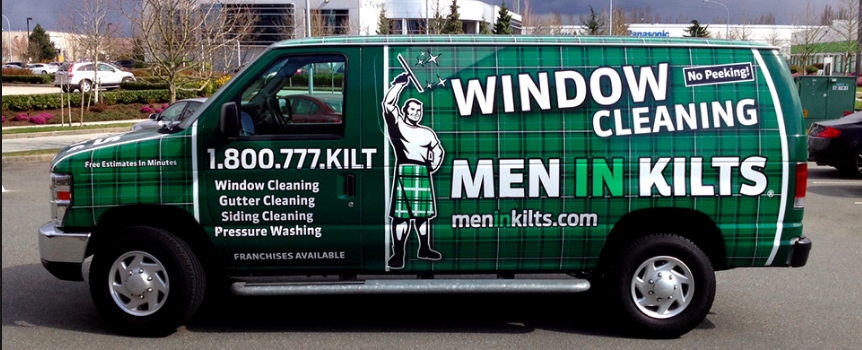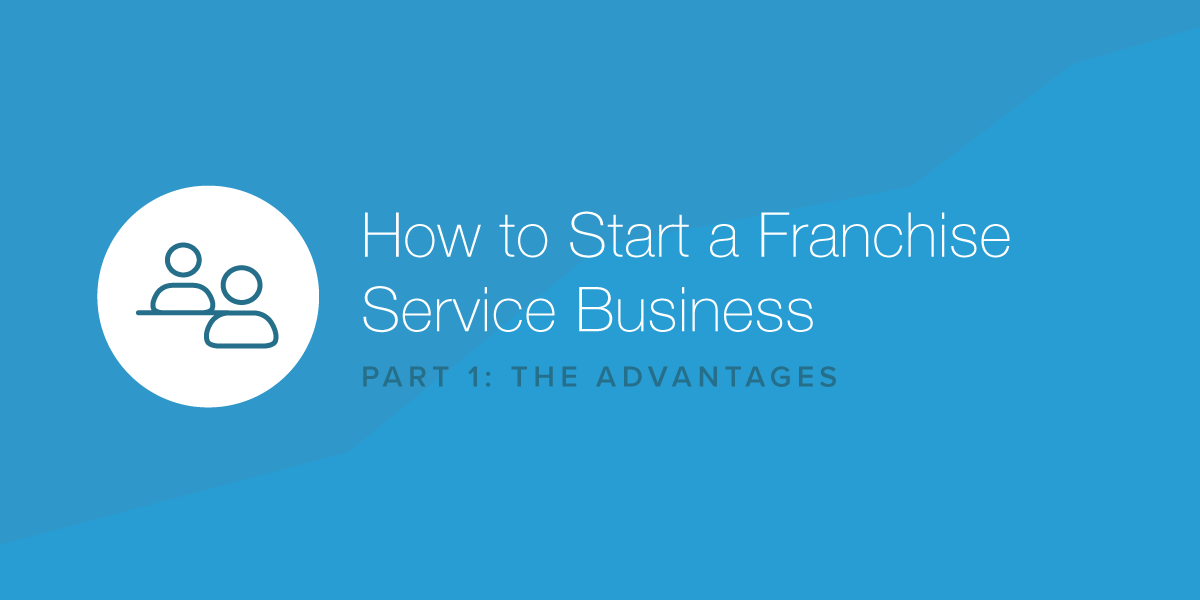How to Start a Franchise Service Business, Part 1: The Advantages
- September 28, 2017
- By: Vonigo
This is the first in a series of blog posts about how to start a franchise, by Tom Rather, CEO of Franchising ASAP.
Franchising is the American dream, with a safety net. For a lot of successful service businesses, franchising might be the pathway to excellent growth — but first just need to know how to start a franchise. In this first installment, we’ll take a look at why franchising might be advantageous for service company owners.
How to Start a Franchise — The Advantages
It’s the most effective merger of large-organization efficiency with small-entrepreneur motivation ever devised. Not every successful business should franchise, but given the proper situation and concept, it can be an extraordinary wealth-producing system.
Franchising is one of the most popular forms of business expansion in the twentieth century.
Capital
Franchising is a method of expansion that allows a business to expand rapidly with a minimum of its own capital. We know of only one effective way to expand without giving up control of either your business or its assets and that is by selling franchises.
Be aware that the money you get from the franchise fee will usually do little more than paying your expenses for finding and training your franchisees.
Still, a group of franchisees using your name and producing a 10-year royalty stream can be a significant source of capital.
Motivated “Managers”
Good managers are hard to find. And once you have found them and trained them at considerable expense, they aren’t easy to keep. Even a manager on an incentive system doesn’t actually own anything. Nothing ties a manager to his job.
On the other hand, the franchisee is not an employee. They buy, with their own money, the rights to own and operate a business similar to the one you have created. And, in the tradition of business ownership, the franchisee is at risk. They must commit time and energy, as well as capital, to its success.
You must, of course, train a franchisee even more extensively than you would a manager. But once trained, a franchisee requires far less supervision than an employee. Your role in the day-to-day operation of the franchisee’s business is more that of an advisor than an employer. You’re there when needed for advice and counsel, but you don’t have the day-to-day responsibility of direct management.
You’re there when needed for advice and counsel, but you don’t have the day-to-day responsibility of direct management.
Image
At the local level, the franchisee is a very visible member of a community or neighborhood. A local franchisee generally represents a higher level of community commitment and involvement with customers than does an absentee owner.

Profitability
With a franchisee involved in the hands-on operation of a franchise, labor costs can be kept down. This allows a unit to be profitable with a smaller population base (and possibly with lower sales levels) than other units may require.
Efficiency
Local owner-managers can usually operate their units with more efficiency and less bureaucracy than a company-run unit. The franchisee is also more attuned to changes his specific unit may need to adapt to their community. Let’s assume that you have an unusual concept — one you’ve tried and tested locally but that has not been expanded nationally. Or, let’s suppose another company has made your concept work in some other region of the country and you are concerned that they will move in, competing against you in your region.
Franchising is the one expansion system that enables the small or medium-sized entrepreneur to become the dominant force in a market by being the “first mover” in the market.
Momentum
A successful franchise program attracts prospective franchisees like a gold strike attracts miners. As the most successful franchises grow, the problem becomes less one of “selling” franchises, than of separating qualified from unqualified applicants.
Franchising
Franchising can enable you to capture an existing market and penetrate new markets as well. As your franchise grows you can, if you desire, use earned revenues to build additional company-owned units. This is especially true in areas where you feel you need market saturation to limit your competitor’s access to that market.
Buying Power
As your franchise grows, collective buying power can become a significant advantage. Everything from equipment to inventory can be purchased by franchisees from approved suppliers at group discounts. In fact, for franchisees in product businesses, savings resulting from collective buying often surpass the royalty fees they pay. If the franchisee can reduce his or her cost of goods by 10% or 20%, that amount goes straight to the bottom line. There are collective buying advantages for a service-oriented business, too, including better equipment that helps the franchisee do the job faster, less expensively, and more efficiently.
Pooling Funds
Another collective-buying advantage of franchising is the ability to pool funds for advertising and public relations programs. Where do franchise-advertising dollars come from? Usually from franchisees. Of course, buying power of all kinds can accrue to any chain—franchised or non-franchised. The chain that grows fastest is often the chain that benefits most from collective buying.
Revenue
Expansion through company-owned units versus franchised units does ensure that all profits from a given unit go directly to the company. On the other hand, all the losses and capital investment of a company-owned unit must be borne by the company as well. In contrast, most Franchisors have, strictly speaking, nothing to do with profits or losses of individual units. If a franchisee makes a lot of money, wonderful. The Franchisor, however, does not share in that gain, as such. The franchisees usually pay royalties on gross sales, not profits.
Franchisors can derive revenue from five sources:
1. Initial franchise fee
2. Royalties
3. Advertising fees
4. Sales of products to franchisees
5. Sales of additional services to franchisees
The initial franchise fee is a one-time admission fee to the franchise program. It covers, to at least some degree, your cost of becoming a Franchisor, franchise marketing, training the franchisee, site selection assistance (for retail franchises), sales commission, and start-up assistance. It should, in addition, help to offset the losses you incur until franchisee’s royalty payments exceed your support costs. Such fees range from as little as $5,000 to as much as $50,000, and can sometimes be tied to the size of the territory being purchased by the franchisee.
Royalties
Ongoing income is derived by the Franchisor from the royalty, usually, a percentage of gross sales agreed to in the franchise agreement that can range from 2% in a low-margin business to 12% in a high-margin, low volume service business. It is the royalty that must support the Franchisor’s ongoing services to his franchisees. Selecting the right royalty is important.
Royalties that are too low and do not permit a Franchisor to provide adequate services can be dangerous to a franchise program. So can royalties that prove to be too high or unfair. High royalties can be lowered; low royalties can rarely be raised.
Products and services can be sold to franchisees and can have a significant impact on your income. However, we generally recommend that Franchisors limit these sales to products closely identified with the business itself and not easily obtained at comparable prices and quality elsewhere.
On the other hand, special services, such as accounting or payroll management, not only assists the franchisees but also helps the Franchisor to accurately monitor their operations.
Such tailor-made services can be an excellent buy for the franchisee. It may also be possible, if you wish, to lease real estate or equipment to your franchisees, although (generally speaking) such activity is better left for seasoned Franchisors.
Add it Up
Basic arithmetic will show how, if a franchise grows quickly, the revenue can add up. However, we repeat: Success in franchising is, in the long run, predicated on the success of your franchisees.
If the franchisees are not successful, sooner or later the program will fail. If they are successful, the rate of franchise sales can be very rapid, indeed. So, although Franchisor income is not directly connected with franchisee profitability, the franchise program itself is ultimately dependent upon franchisee profitability.
A franchise can expand by selling individual units. Such expansion is nothing compared to the rate some Franchisors have achieved through area development and sub-Franchisor sales.
Flexibility
Franchising adapts remarkably well to a variety of corporate situations, structures, and goals.
The classical picture of a Franchisor is one of a company with finite financial resources, which relies on its franchisees to provide the start-up capital, construct units, hire employees, and manage daily operations. Some highly successful Franchisors have found it profitable to assume some or all of these functions themselves, for a fee.
Franchisors, who have more capital to invest, can derive even better returns from franchising while still enjoying the benefits of dedicated owner/operators handling local management.
Franchising can also be flexible in the other direction. If you’re short on capital but long on management ability, you can have your franchisees put up all the capital.
Exit Strategy
One other advantage of franchising is the added value a franchise program can give to a company. Franchising can make the business a more valuable asset than it had been before. If you decide to sell the business, you’ll be in a much stronger negotiating position.
Want to learn about how franchise management software can help with the growth of your franchise? Book a free, private demo of Vonigo.




